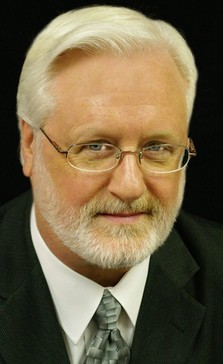Professional certification, trade certification, or professional designation, often called simply certification or qualification, is a designation earned by a person to assure qualification to perform a job or task. Not all certifications that use post-nominal letters are an acknowledgement of educational achievement, or an agency appointed to safeguard the public interest.

A respiratory therapist is a specialized healthcare practitioner trained in critical care and cardio-pulmonary medicine in order to work therapeutically with people who have acute critical conditions, cardiac and pulmonary disease. Respiratory therapists graduate from a college or university with a degree in respiratory therapy and have passed a national board certifying examination. The NBRC is responsible for credentialing as a CRT, or RRT,

A registered nurse (RN) is a nurse who has graduated or successfully passed a nursing program from a recognized nursing school and met the requirements outlined by a country, state, province or similar government-authorized licensing body to obtain a nursing license. An RN's scope of practice is determined by legislation, and is regulated by a professional body or council.

A psychologist is a professional who practices psychology and studies mental states, perceptual, cognitive, emotional, and social processes and behavior. Their work often involves the experimentation, observation, and interpretation of how individuals relate to each other and to their environments.
Continuing medical education (CME) is continuing education (CE) that helps those in the medical field maintain competence and learn about new and developing areas of their field. These activities may take place as live events, written publications, online programs, audio, video, or other electronic media. Content for these programs is developed, reviewed, and delivered by faculty who are experts in their individual clinical areas. Similar to the process used in academic journals, any potentially conflicting financial relationships for faculty members must be both disclosed and resolved in a meaningful way. However, critics complain that drug and device manufacturers often use their financial sponsorship to bias CMEs towards marketing their own products.
The Master of Education is a master's degree awarded by universities in many countries. This degree in education often includes the following majors: curriculum and instruction, counseling, school psychology, and administration. It is often conferred for educators advancing in their field. Similar degrees include the Master of Arts in Education and the Master of Science in Education.
An advanced practice nurse (APN) is a nurse with post-graduate education and training in nursing. Nurses practicing at this level may work in either a specialist or generalist capacity. APNs are prepared with advanced didactic and clinical education, knowledge, skills, and scope of practice in nursing.

An agriculturist, agriculturalist, agrologist, or agronomist, is a professional in the science, practice, and management of agriculture and agribusiness. It is a regulated profession in Canada, India, the Philippines, the United States, and the European Union. Other names used to designate the profession include agricultural scientist, agricultural manager, agricultural planner, agriculture researcher, or agriculture policy maker.
Relationship education and premarital counseling promote practices and principles of premarital education, relationship resources, relationship restoration, relationship maintenance, and evidence-based marriage education.

Nurses in the United States practice nursing in a wide variety of specialties and departments.

Recreational therapy or therapeutic recreation (TR) is a systematic process that utilizes recreation (leisure) and other activities as interventions to address the assessed needs of individuals with illnesses and/or disabling conditions, as a means to psychological and physical health, recovery and well-being. Recreational therapy may also be simply referred to as recreation therapy, but in short, it is the utilization and enhancement of leisure.
The basic requirement for pharmacists to be considered for registration is often an undergraduate or postgraduate pharmacy degree from a recognized university. In many countries, this involves a four- or five-year course to attain a bachelor of pharmacy or master of pharmacy degree.

Nursing is a profession within the healthcare sector focused on the care of individuals, families, and communities so they may attain, maintain, or recover optimal health and quality of life. Nurses can be differentiated from other healthcare providers by their approach to patient care, training, and scope of practice. Nurses practice in many specialties with differing levels of prescription authority. Nurses comprise the largest component of most healthcare environments; but there is evidence of international shortages of qualified nurses. Nurses collaborate with other healthcare providers such as physicians, nurse practitioners, physical therapists, and psychologists. There is a distinction between nurses and nurse practitioners; in the U.S., the latter are nurses with a graduate degree in advanced practice nursing, and are permitted to prescribe medications unlike the former. They practice independently in a variety of settings in more than half of the United States. Since the postwar period, nurse education has undergone a process of diversification towards advanced and specialized credentials, and many of the traditional regulations and provider roles are changing.

Nurses in Canada practise in a wide variety of settings, with various levels of training and experience. They provide evidence-based care and educate their patients about health and disease.
David J. Bredehoft, Ph.D., CFLE, is the former chair of the Department of Social and Behavioral Sciences at Concordia University, Saint Paul, in Minnesota as well as a former Professor of Psychology and Family Studies. Along with Jean Illsley Clarke and Connie Dawson, he is a co-author of the 2003 parenting book How Much is Enough? Everything You Need to Know to Steer Clear of Overindulgence and Raise Likeable, Responsible, and Respectful Children.
An urban planner is a professional who practices in the field of town planning, urban planning or city planning.

Michael A. O'Donnell is an American writer and researcher and co-principal investigator of the Adolescent Wellness Research Project, jointly with University of Alabama family strengths scholar Nick Stinnett. Their research on adolescent wellness was published in the book Good Kids and they were invited to speak on this study before the United Nations in Vienna, Austria, in 1995.
Clinical mental health counseling is a healthcare profession addressing issues such as substance abuse, addiction, relational problems, stress management, as well as more serious conditions such as suicidal ideation and acute behavioral disorders. Practitioners may also assist with occupational growth in neurodivergent populations and behavioral and educational development. Clinical mental health (CMH) counselors include psychologists, psychiatrists, mental health technicians, marriage counselors, social workers, and family therapists.
Nursing is the largest healthcare profession in the United States, with more than 3.1 million registered nurses. Between 2012 and 2022, employment for nurses is projected to grow by 19 percent, which is more than any other profession. Nurses make up the largest component of staff in hospitals but are also able to provide care in clinic settings, patient's homes, schools, nursing homes, public health agencies, and mental health centers. In addition, nurses can be found in the military, in industry, nursing education, and do health care research. Nurses in these various roles and settings can provide direct patient care and case management, but also develop and establish nursing practice and quality standards within complex healthcare systems. As each degree can provide a different level of care for patients and function in vastly different roles, it is important to differentiate between them. The levels of nursing degrees have different educational requirements, licensure, and credentialing that can vary state to state.








